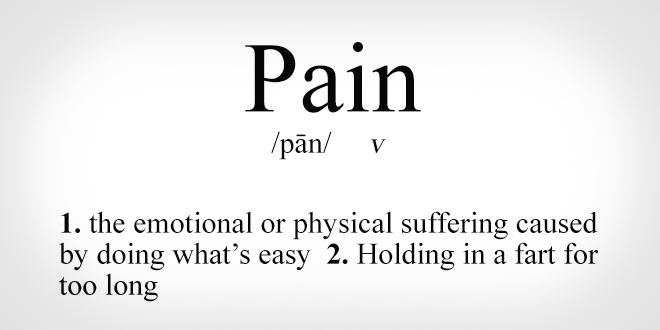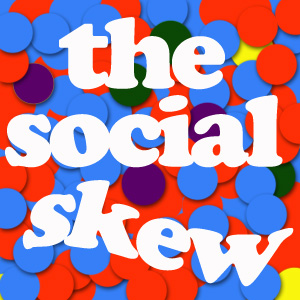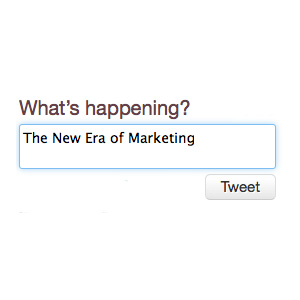A hundred billion neurons. Ten trillion cells. One hundred trillion bacteria. All of this influenced by an immeasurable number of environmental and biological factors.
Human beings are complex creatures, aren’t they?
If you look through a microscope, perhaps. If you take a step back, however, human behavior can be summarized in one sentence.
We move toward pleasure and away from pain.
In most situations, pain plays a greater role in our motivation. Burning your hand on a hot coal, walking across broken glass, or getting punched in the face with a baseball bat are all painful situations, however this is typically not the kind of pain that influences our behavior. What pain does move us?
It depends on how you define pain. More accurately, it depends on what you choose to believe is painful.
For most, uncertainty is the greatest source of pain. Even if our current situation isn’t ideal- or far from it- we are more likely to continue with the status quo because we can predict the outcome. What lies behind door #2 could be your wildest dreams realized. It could also be humiliation, failure, ridicule. The potential pleasure is overshadowed by this potential pain, so we choose the familiar route, the certain route, the easy route.
What’s the problem with doing what’s easy?
Everything.
We settle. We fail to grow. We lower our own bar. We become a victim of our own limitations.
Worst of all, we lose our edge. When everything is easy, nothing is exciting.
Redefining Pain
The first step for changing this course is to redefine what we interpret as pain.
Which is worse?
[Short term] The rejection that comes from a failed attempt of hitting on the girl at the bar or [Long term] a lifetime of loneliness?
[Short term] The humiliation of not being able to follow through on a publicly stated goal or [Long term] the complete absence of self-confidence?
[Short term] The failure that comes from “unsuccessfully” pursuing an entrepreneurial venture or [Long term] marinating in regret on your deathbed?
When we take a bigger picture look at what’s painful, pain and pleasure change camps. What’s easy becomes hard.
What’s hard becomes easy.




